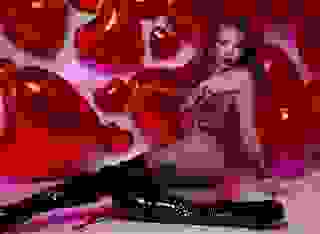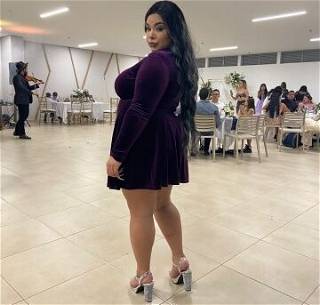Note: You can change font size, font face, and turn on dark mode by clicking the "A" icon tab in the Story Info Box.
You can temporarily switch back to a Classic Literotica® experience during our ongoing public Beta testing. Please consider leaving feedback on issues you experience or suggest improvements.
Click here"No, I keep a change in a gym bag in the trunk."
"Wash my back?" she said, a twinkle of mischief passing through her eyes.
"S'pose that might be right fun, Ma'am," he said, looking at her with a grin spreading across his unshaven face, and dropping into his best Southern Redneck accent. "Don't mind if I do." He walked over to her and took her hand. "Mind if I finish the dishes later?"
She took his hand and looked at him, then stood up and walked toward her bedroom - pulling him along behind her.
___________
He was beside her in the recovery room, holding her hand. He looked at her tear-streaked face, knowing that the news must have been very bad indeed, and he leaned forward, wiped a tear off her cheek as it built in her eye and rolled down her face.
"Can you head on home tonight?" he asked finally, not knowing what else to say.
She shook her head. "No, they want to do the procedure in the morning. First thing."
"Is it bad?"
"Think so; about as bad as it gets, or so Dr Dunsworth said."
"Is their anybody I can call for you?"
"Uh, Alan, I don't really know how to say this, but you're basically all I've got. Most of the other people I know . . . well . . . I don't want them here. They are . . . were . . . part of another life; that life's over. All over now."
"What about your parents?" he asked. The transformation was instantaneous and complete, he was shocked at the hatred he saw cross her face. "Are you sure you don't want me to call them?"
"No, I'm not sure," she said finally, resigned to the contradictions that ruled her universe.
"You have the number handy, or do you want to call them?"
"Let me think about it for a while, huh?"
"It's alright, baby. We'll get through this."
"Oh, we will?" she said, her voice full of fear and sarcasm. "This doesn't feel a lot like a we kinda deal, Alan."
He looked at her, measuring her strength, probing her despair. "Well, Diane, you can do this alone. That's a choice you can make. It's your right to make it, if that's what you really want. But could I give you some advice? It's free, so it might not be worth much."
She looked up at him, dark circles already etched under the skin of her eyes.
"We learn from our mistakes, Diane, and hopefully we grow. If we don't learn from our mistakes, we keep making the same mistakes over and over. And I think one of the mistakes we all make is that . . . well, somehow, someway, we've forgotten how to forgive people. We live in this world concerned with our own lives, with our own survival, and we just lose sight of something basic. We've isolated ourselves, lost touch with each other, we've lost our sense of community, lost our ability to help one another, to rely on one another, to see each other through the goods times - and the bad. I get worried sometimes because I see this every day, and I see it everywhere . . . rich, poor, black, white, women, and men. We've become a nation of islands unto ourselves."
She looked at him, a question on her face.
"John Donne, 'No man is an island'. We need each other, Diane. Or we perish. And forgive me, but you're making a big mistake if you think I don't care about you. I want to . . . no, I need to be here with you, Diane. I need you, need you more than anything else in this life. And I think you need me, too."
Her eyes were full of tears, her nose was running, and he leaned over to kiss her. First he kissed her on the forehead, then he kissed her lips. He held her face, felt her trembling, and he pulled the blanket on the bed up over her chest.
"I'd forgotten that, Alan. 'No man is an island.' That was a poem, wasn't it? I can remember reading it in high school, in front of class. I used to think there was something to it, but then I learned the truth. My father taught me the truth."
He looked at her, saw the coldness seeping back into her eyes, and he knew she was leaving him.
"My father taught me," she began, "that love is a fairy-tale sold to women by men . . ."
"And is that all you learned from him, Diane? Or did he hurt you deeper than that?"
She looked up at him, cold fury building in every fiber of her being. "What would you know about that? What gives you the . . ."
"What, the right? You don't think I haven't seen abused children before, Joan?"
She started to think of a reply, but the subterfuge of her name coming into the light of day brought her up short.
"Yeah. You know, I could stand here and tell you that I know all about you, but let me be the first to say, Joan Dickenson, that in truth I don't know the first thing about you, but I've been with you for . . ." he looked down at his watch " . . . about twenty hours, now, and yeah, I've read your files, and yes, I've heard all the stereotypical bullshit, seen it all, been there, done that. But let me tell you something. It doesn't mean shit. I've looked in your eyes, Joan Dickenson, and I've seen the truth. The truth about you. In your eyes. Now, here's my truth. No man is an island. I didn't believe that until last night, I've never believed that before in my life. But I do now . . . right now. But if you want to do this alone, that's your right, that'll be your choice. But I want to be here, now, with you."
"Alan?"
"Yes."
"Alan. Grow up. Go home." ___________
Alan Burnett listened to the same oldies radio station he listened to everyday, that AM station that had been around since a year longer than forever and that was still lost in a play-list that seemed planted deep in the seventies. The Moody Blues were still looking for Tuesday Afternoon, and Burnett sat in his squad car, his thumbs drumming away on the steering wheel, cruising down one suburban street after another, looking for something - anything - that would take his mind off Joan Dickenson. But it had been useless. For months he had thought about her, thought about her choice, and he wondered why he was still so confused about her surrender.
"2114," the radio blared.
"2114, go ahead."
"2114, signal 54 at 5-1-1 Byron Court, ambulance en route."
"2114, code five."
"2114 code five at zero nine thirty three."
He made a u-turn and headed back toward Saratoga Estates, jotting down the dispatch time and address on his daily activity report on top of his aluminum clipboard. His mind was reaching, trying to remember why that address sounded so familiar. He was about five minutes from the address, a welfare concern/sick call with an ambulance on the way, when it hit him.
511 Byron Court. That's her address.
He reached down to the center console and flipped on the lights and siren, and he punched the accelerator hard. He took corners hard and deep, pushed the squad car as fast as he dared down straight stretches of road, and soon he saw her house. It looked quiet, just another Tuesday morning in suburbia. He reached for the radio. "2114, code six."
"2114 code six at zero nine forty."
He pulled up in front of the house and jumped out of the car and ran to the door. It stood open a few inches, and he called out her name and knocked on the door before he stepped in. He heard moaning nearby, and he pushed the door open and instantly felt resistance, then more moaning. He looked down, and there she was, lying face up on the floor in a white terrycloth robe in a pool of vomit. There was vomit in her mouth, all over her face, but she was lying there quietly. Her eyes were wide open, almost lifeless.
'She's not breathing,' he thought. 'Fuck, she's drowning in vomit!' He dropped to her side, put two fingers on her carotid artery and felt for a pulse as he watched her chest for signs of breathing. He couldn't feel anything. He checked her neck for obvious trauma, then pulled out his hand radio and yelled: "2114, starting CPR at this location, expedite ambulance!"
"2114 received at zero nine forty one."
He swept the vomit from her mouth carefully, not remembering exactly what to do in this situation other than to clear the airway and start CPR, so when he had all of the liquid out that he could feel he started rescue breathing. He gave two breaths, then moved to her chest to begin compression - and he saw the carnage under her robe. Her breasts were gone, and the skin he saw was blotchy red and yellow. Her arms were bruised, and her hair was almost all gone. He felt for the sternum and placed his hands were he thought he would do the least damage and compressed her chest. He moved back to breath for her, and back to her chest to help her heart move blood, and he continued even as he heard a fire-truck and ambulance wailing in the distance, then coming down the street and stopping in front of her house. He heard voices and footsteps running toward the door, but he kept up his rhythm, not wanting to miss a breath or a compression.
"In here!" he yelled as he pressed down on her chest, and the door burst open. A paramedic dropped to her head and put a mask with a rubber bag attached to it over her face and began pumping air into her; a fireman pushed him aside and began compressions while another paramedic ripped her robe open and started hooking up EKG leads to her chest.
"She had a mastectomy several months ago . . ." he blurted out.
"No shit!" the paramedic bagging her said. "You know her?"
"I met her when her house was burglarized, popped a couple of scrotes when they ran out the back . . ."
"Yeah, yeah, I remember . . . that was you, huh? Dave, you got anything there?"
"Yeah, normal sinus rhythm, but its thready and her BP is 72 over 38. I'm gonna call in for orders, we need to get some fluid in her . . ."
Burnett stood and backed away from the medics, let them do their thing. He walked back into the house, checked it for any signs of foul play and found none, then looked for any numbers of friends to call and found none, or doctors to call and he found a discharge order sheet and a number to call if she had a problem. It was dated not quite a week previously. He went to the telephone and called the number. He got a nurse, and explained who he was and what was going on.
"Oh, yeah, Joan Dickenson. Yeah, she's still in chemo. Yeah, can the paramedics bring her to Olsen? Dr Dunsworth is on call there this morning; I'll let him know she's headed in . . ."
"Yeah, I'll let them know. Listen, you have any family or any other contacts to call?"
"Ah, let me look. Uh, just an Officer Alan Burnett with the police department."
The words hit Burnett hard, he seemed to stagger under the weight of them.
"You still there, Officer?"
"Yeah. Well, I gotta go, thanks for the info." He hung up the phone, turned to look at her, and it all snapped into focus.
She'd been protecting him, didn't want him to go through her sickness and disfiguration.
That's why all the contradictory impulses flew across her face.
He looked at her lying there, vomit all over her robe and in her hair, and he felt like he'd betrayed her.
'Hell,' he thought, 'I have betrayed her.' He turned, looked away, wanted to hide the tears that were welling up in his eyes. 'I was her friend', he thought, 'and I let her push me away. Let her dictate the terms . . . of my surrender . . .'
The paramedics were running an IV, talking to the hospital on their radio, but they didn't seem too worked up. Maybe she would be alright, he thought. He walked off to her bedroom, the memories washed over him when he saw the room again, and he looked around the room. Lot of medications on the bedside table, and then he saw it. Vomit on the carpet, vomit on the bed. He walked into the bathroom, and he could see that she had a least tried to make it to the toilet a number of times. 'God, she must have been living in misery', he thought.
Burnett walked back out to the entryway, told them about the transport request to Olsen, then helped the medics load her on their gurney and walked with them out to the ambulance. He helped lift her into the back, then shut the door behind the paramedics. He walked back to his squad car and sat behind the wheel; he picked up the radio and checked in with central dispatch. "Ah, 2114."
"2114, go ahead."
"2114, show me clear with a report."
"2114, clear at ten twenty two hours. Service number 8739717."
"2114, received." Burnett looked at his steno-pad, started to write some notes down, but his hand started to shake, his eyes filled with tears. He shook his head, tried to clear the fog that had settled over his world, but he seemed to sink deeper into a surreal gloom that had engulfed the world. He tried to write a few words down on the pad, but he quickly gave up the effort. He looked at his hand, looked at the trembling that consumed it, but he still held the pen in his hand like a talisman, and he willed his hand to stop shaking. The ambulance started to pull away from the curb and he watched it with sorrow as it ran down the street. He watched the ambulance like it was a hearse; that his dreams had died and the remains were being taken away. The ambulance continued down the street, then turned a corner and was gone.
His hand began to shake violently as tears fell on it.
___________
Burnett was sitting in the visitors lot outside Olsen Medical Center in his car; he was lost in thought, hesitating on the crest of a wave.
He didn't know what to do, which way to turn. The way seemed clear; she had listed him as her contact information, so she must have still seen him as something important in her life. But her last words to him rattled in his mind, the wound still fresh despite the passage of time.
Finally, he decided. He opened the car door and got out, stretched away the days frustrations, then walked into the hospital. He had kept his uniform on, something he usually didn't do after his shift was over, but he didn't want to answer questions from nurses and the uniform was good at keeping people away. He ignored, as he usually did, the stares from people as he made his way into the lobby, and walked over to the information desk and asked the lady there where he could find Joan Dickenson.
"Is she family?" the woman asked.
"Uh, no, I took the call this morning at her house. I just needed to do some follow up."
"Oh, alright. She's in 417, right up those elevators there to the fourth floor. Just check in with the duty nurse at the Blue desk."
"Thanks, Ma'am," he said as he walked off toward the elevators. He walked into an open one and rode up silently into the tortured world of the sick and the dying. He tried to ignore the medical conversations of some doctors in the back of the elevator and the small talk of a man and a woman talking about Aunt Esther's gall bladder. He looked up at the ceiling, let out a sigh, then exited as the door opened on the fourth floor. He walked to the duty nurses' station.
"Can I help you, Officer?" the nurse asked, looking him over with a hint of suspicion.
"Yeah, I'm doing some follow up on a sick call this morning. Joan Dickenson, I think they said she's in 417. How's she doing?"
"'Bout as good as could be expected?"
"How so?"
"She's pretty sick, Officer. Cancer, in chemotherapy right now; her second round."
"What does that mean?"
"Well, the first try to stop the cancer was surgery, followed up by chemotherapy. It hasn't worked. So they'll try another round of chemo."
"If that doesn't work? Then what?"
"Then we'll try to keep her comfortable," the woman said, avoiding the obvious conclusion.
"So what did y'all do today?"
The nurse took out a chart and looked it over. "Sorry, I just came on. Uh, looks pretty straight forward, just tried to stabilize her, get her fluids stable again, work on the nausea."
"Can I see her?"
"Is this personal, Officer, uh, Burnett?" the woman asked, looking at his name on the little silver badge over his right shirt pocket.
"Little bit of both, Nurse Parker," he said after craning his head to make out the nurses name on her uniform.
"Well, yeah, go ahead. I think she's asleep, so don't wake her."
"Right," he said walking off down the hallway. Burnett hated hospitals; all cops hated hospitals, he thought. Bad karma, he said to himself as he looked in the rooms at the various people laid up in bed after bed. He came to 417 and knocked gently on the door. When he heard no answer he pushed the door open a little bit and looked in; she was sitting up, eyes wide open - looking at life as it played out on the ceiling.
"Hello there," he said, just leaning into the room.
She looked over at the sound, looked at his face and uniform, and lifted her left hand and motioned him in. "Well, well, well," she said, her voice a raspy echo of the seductive music she had made not so long ago. "Look who's here . . ."
"How you feelin', girl. You look a helluva lot better than you did this morning."
She looked confused. "This morning?"
"Yeah, I responded to the call this morning, got there before the paramedics."
"Oh."
"So, how're you feeling?"
"Weak, my throat hurts."
"You mind if I ask some direct questions?"
"Yes, Alan, I do?"
He looked at her, an unasked question hanging in the air between them.
"What, Alan? What do you expect?"
"I thought at least I could be your friend. You know, friends help friends when they're down. I just wanted to help out if I could."
"You do, huh?"
"I can imagine. I'm not sure I would want to share what it is you're going through if I was in your place. But I'm not sure I could turn my back on a friend, either."
"Oh, are you my friend?"
"I wanted . . . I want to be."
"You're just not going to grow up, are you, Alan?"
"Just what the fuck does that mean? I mean, I just don't get it! What strikes you as childish, what is it about needing someone else that strikes you as childish!?"
She looked away; her eyes focused on some nearing eternity. "So, Alan, you want to watch me die. Does that strike you as . . . why can't you understand?"
"You know, Diane . . . Joan . . . I'm really selfish. I don't give a damn if I'm with you for a day, a week, or a lifetime. I just wanted to be with you, hell, maybe I need to be with you. And the thought of you barfing all over yourself, almost drowning in vomit . . . well, nobody should go through this alone, darlin'. It ain't right, and I'm pissed off!"
"Well, at least you know you're selfish!" she said, a smile trying to form on her cracked lips.
"That's not the point. Why are you being so Goddamned selfish?"
"Because I love you."
The words rocked him, left him feeling dizzy. He felt the room spinning, felt light-headed as the words hit him and their meaning sunk in.
"Not what you expected to hear, Alan?"
"No, I guess not," he said in a voice just barely above a whisper.
"Come here," she said, holding out her hand.
He walked over to her, took her hand in his, and looked at her, looked at her eyes. "I just don't get you," he said in matter-of-fact monotone. "I'm just fucking clueless."
"Yes, you do, Alan. You're about the only person who ever has."
He nodded his head. "Uh-huh. Right."
"So you were there? This morning, I mean?"
"Uh-huh."
"I don't remember."
"Not surprised, darlin'. You were about nine-tenths dead. Had to do CPR and all that hero shit. You were a mess . . ."
"CPR? My heart had stopped?"
"I'm not . . . sure. You were choking, on vomit, drowning."
"You did CPR and my mouth was full of garp?"
"Yeah, just part of the service, Ma'am," he said with a grin all over his face.
She was gripping his hand very hard now, looking at him intently. "Thank you, my love."
He looked away for a moment. "You're welcome, darlin'."
"I like it when you call me that."
"Yeah? So, when do I get to spring your ass from this place?"
She looked away, looked out the window into the infinite. "I don't know. They're not telling me too much right now."
"Want me to find out?"







